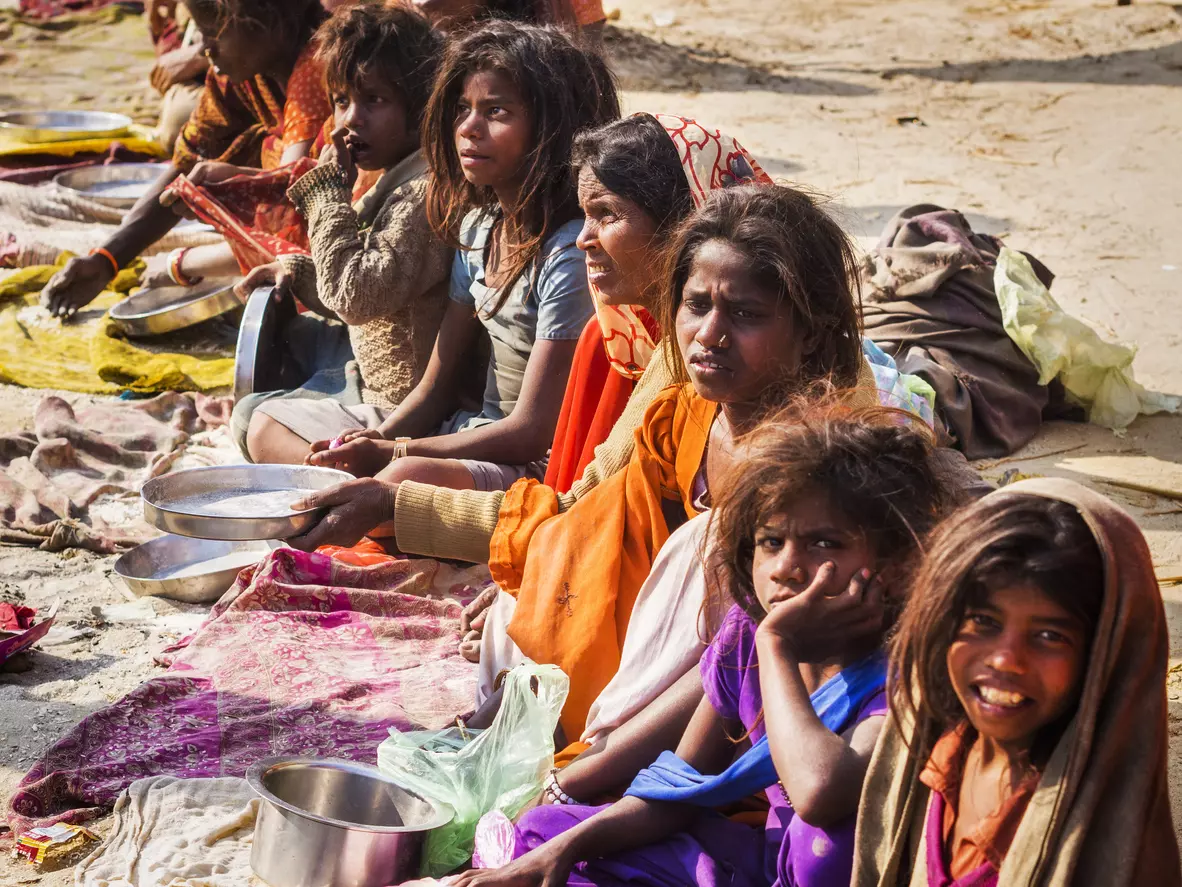
Andhra Pradesh's ‘golden families’ initiative struggles to gain traction
Branded as ‘Margadarshi–Bangaru Kutumbam’ (Mentor–Golden Family), the scheme encourages the wealthiest 10 per cent of the population to adopt and uplift the poorest 20 per cent

The Andhra Pradesh coalition government has launched an ambitious new welfare programme titled P-4 (Public-Private-People Partnership), aiming for zero poverty.
Branded as “Margadarshi–Bangaru Kutumbam” (Mentor–Golden Family), the scheme encourages the wealthiest 10 per cent of the population to adopt and uplift the poorest 20 per cent. While the intention is noble, participation remains low, especially among the affluent.
Launched on Ugadi
The programme was ceremonially launched on Ugadi, a festival day considered auspicious for new beginnings.
Also Read: Andhra govt mulling incentives for couples planning a third child: CM Naidu
The Narasimha family of Mangalagiri and the Emmanuel family from Amaravati were named the first “Golden Families” under the scheme.
Identifying the poor
To determine eligibility, a two-phase survey was conducted across all districts between February and March, overseen by ward and village secretariats. Households without electricity, cooking gas, or a working breadwinner were prioritised.
Selected families were then formally recognised in village assemblies as “Bangaru Kutumbalu” (Golden Families).
Also Read: Andhra govt, ISRO ink 5-year deal to leverage space tech for citizen services
So far, 19.15 lakh families across Andhra Pradesh have been identified as golden families, comprising over 53.6 lakh individuals. District-wise counts vary, with Guntur, Kakinada, and Nellore among the highest.
Patchy response across districts
Despite the state’s large pool of Golden Families, adoption by mentors is sparse. As of now, only 83,898 families have been adopted - just a fraction of the total.
Districts like Alluri Sitaramaraju and Anakapalle show higher engagement, while others such as Sri Sathya Sai, Kakinada, Krishna, and Kurnool reflect minimal or no adoptions. Over 18.3 lakh families still await mentorship.
Also Read: Andhra Pradesh leads solar manufacturing push, Jupiter plans Rs 2,700 cr facility
While adoption is progressing in some districts, others remain largely inactive. Kakinada, with over one lakh golden families, has seen only five adoptions. Krishna and Kurnool report just two and 22 adoptions respectively.
No adoptions have occurred in Sri Sathya Sai district. Other districts such as Tirupati, East Godavari, and Kadapa show similarly negligible numbers.
Leaders set example
Chief Minister Chandrababu Naidu recently reviewed the scheme’s progress, urging ministers, MLAs, MPs, and officials to adopt at least 15 lakh families by August 15.
Also Read: Free bus travel for women from Aug 15: Andhra CM Naidu
Union Minister Kinjarapu Rammohan Naidu pledged to adopt 10 families. Business leaders from firms like Nujiveedu Seeds, Kushalava Group, Model Dairy, and NRI College have also come forward.
Planned benefits
According to C Kutumbarao, former Vice Chairman of the Andhra Pradesh Planning Commission, the initiative is geared towards customised development. Families will receive assistance based on size, current livelihood and developmental needs. Skill training and job placements are also in the pipeline.
A tracking system is being developed to monitor the progress of each family from registration to adoption and beyond.
Criticism
CPI state secretary G Eswaraiah dismissed the scheme as political theatrics. He claimed it was merely a repackaging of Corporate Social Responsibility (CSR) initiatives that had previously failed in implementation.
Also Read: Andhra Pradesh launches green energy project worth Rs 22,000 crore
He criticised influential businessmen and educational institutions associated with the ruling coalition for not stepping up to adopt any families, despite their capacity.
‘A concept with promise’
Dr Gowada Veerraju, a political science academic, hailed the idea as visionary, provided it is implemented sincerely. He emphasised the need for the government to proactively engage potential mentors and ensure consistent follow-through.
With focussed effort over the next four years, he believes the scheme could elevate thousands of people from poverty.
(This article was originally published in The Federal Andhra Pradesh.)

